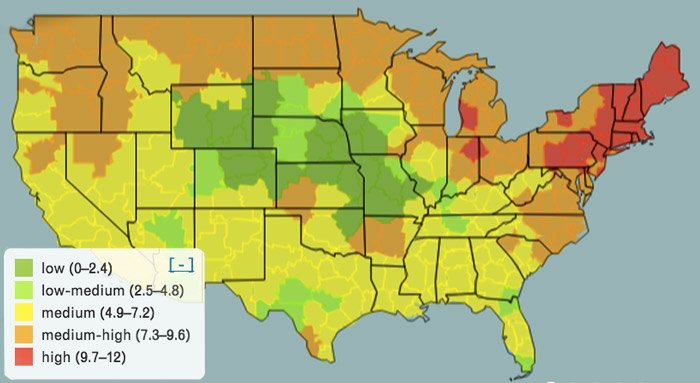
May 19, 2017
Last fall, Philadelphia ranked as one of the worst cities to live in with seasonal allergies, coming in at No. 32 on the Allergy and Asthma Foundation of America’s Fall Allergy Capitals Report. Philly is officially an Allergy Capital. Hurrah!
Regardless of where you live, if you’re one of the millions of people who find themselves seasonally red-eyed and snotty-nosed every year, you could be in need of some new, less commonly known methods for alleviating your sneezing woes.
Keep these tips and insights on your radar as you combat the never-ending labyrinth of seasonal allergies.
Stress can worsen pretty much any allergy symptom, so you need to STAY CALM. Whether it feels like you’re juggling a dozen disparate responsibilities, or if you just get anxiety from sleeping improperly or reading frightening news headlines, stress is only going to make things more complicated for your health.
A blog post from Penn Medicine suggests practicing yoga or other exercises to combat symptoms in a natural way.
Organic Life outlines some particularly effective yoga practices that will strengthen your immune system and further ease your allergies.
This is particularly not fair during a notably nice spring afternoon or crisp fall day, but keeping your windows open will only flare up your seasonal allergies as zealous traces of pollen fly at your face with every breeze. When it’s warm out, this means you must trade fresh air for the A/C, but this at least opens the option to employ filters to your air at home. HEPA-certified filters are the way to go, according to Penn Medicine. This map from pollen.com shows the pollen count across the United States on Friday, May 19, 2017. For an interactive map with the latest pollen information anywhere in the U.S., click on the map.
Every time your dog runs around outside, he or she is probably bringing inside all the things that make you sneeze. During spring, take care to regularly clean your pup or another animal (though most cats notably hate water, so good luck with that).
According to Organic Life, celery is one food that can exacerbate birch pollen allergies. Almonds and sauerkraut can affect seasonal allergies in a similar way and worsen your symptoms.
Unfortunately, even after you’ve gotten through a long day of staying isolated in A/C, washing your dog and avoiding celery, you may not want to have that celebratory drink for all your hard work. Alcohol has been found to be particularly cruel if you suffer from asthma, emphysema and allergies, so just be prepared to sneeze your way through your pinot noir.
Salmon is one of the best things to eat that will fight allergy inflammation and keep your symptoms at bay, according to Organic Life. Pumpkin seeds, turmeric, strawberries and apples all help to dial down allergies, too. In fact, pregnant women who eat apples help their offspring to better avoid asthma when they grow up.
In a shocking turn of events that surprises no one, allergies are yet another thing that is worse for women. Seasonal allergies can flare up more intensely during PMS, and women who are pregnant could face serious health issues to themselves and their womb if not treated properly. The good news is that most commonly used antihistamines are considered safe to use during pregnancy, but decongestants can cause more of an issue.
Sudafed and other pseudoephedrines should also be avoided if you’re pregnant, as there have been links between usage and defects in newborns, according to the American College of Allergy, Asthma & Immunology.
Penn Medicine suggests checking up on the American Academy of Allergy Asthma & Immunology’s daily pollen and mold report. Here is the one for Philadelphia.
If you’ve been treating seasonal allergies with the same medication, specifically frequent use of antihistamines, it might be a good idea to switch it up and try a steroid nasal spray, says Penn. Over-the-counter options are pretty common, but if allergies still persist, ask your doctor to help get you medicated and motivated for allergy season.